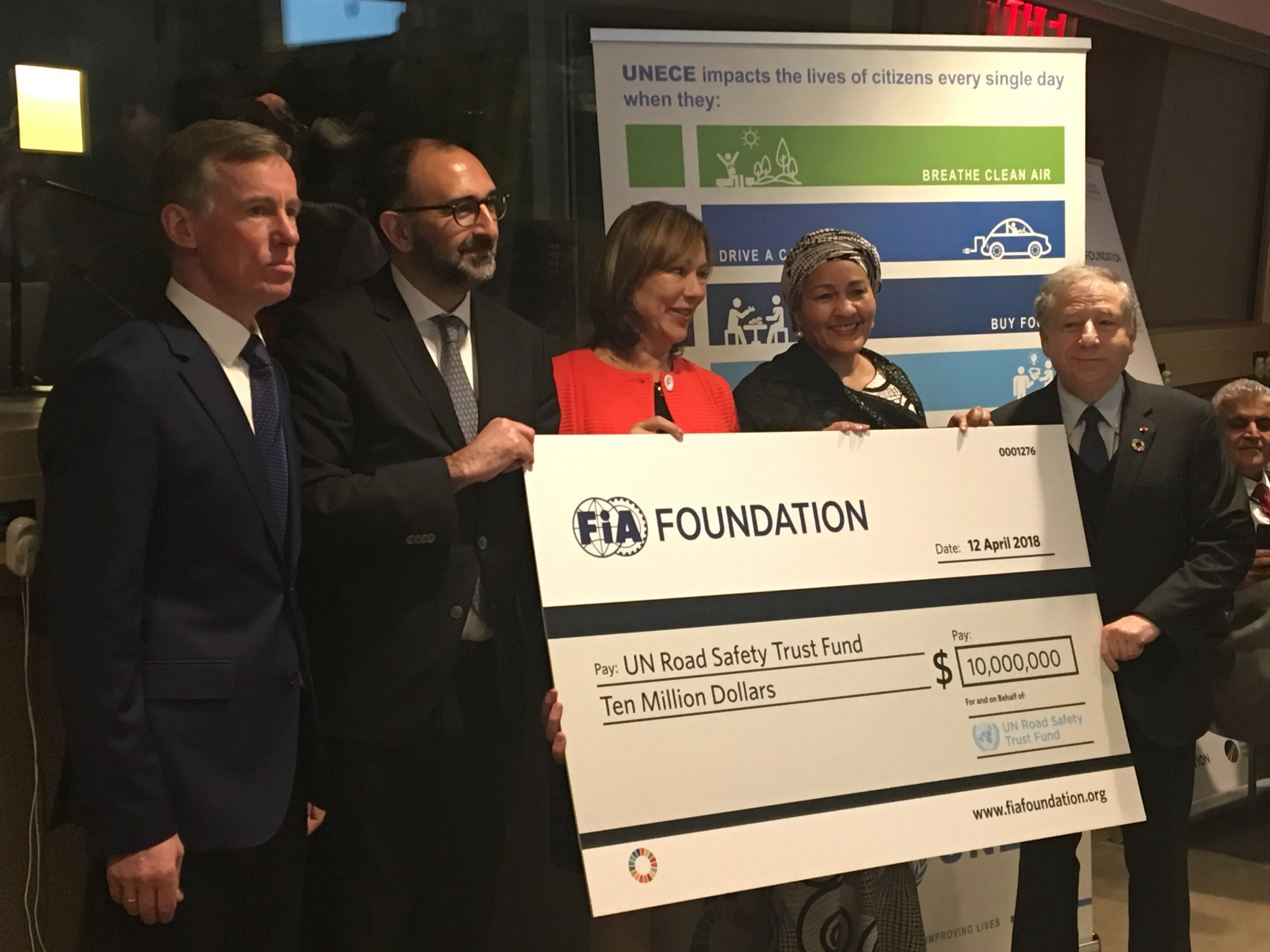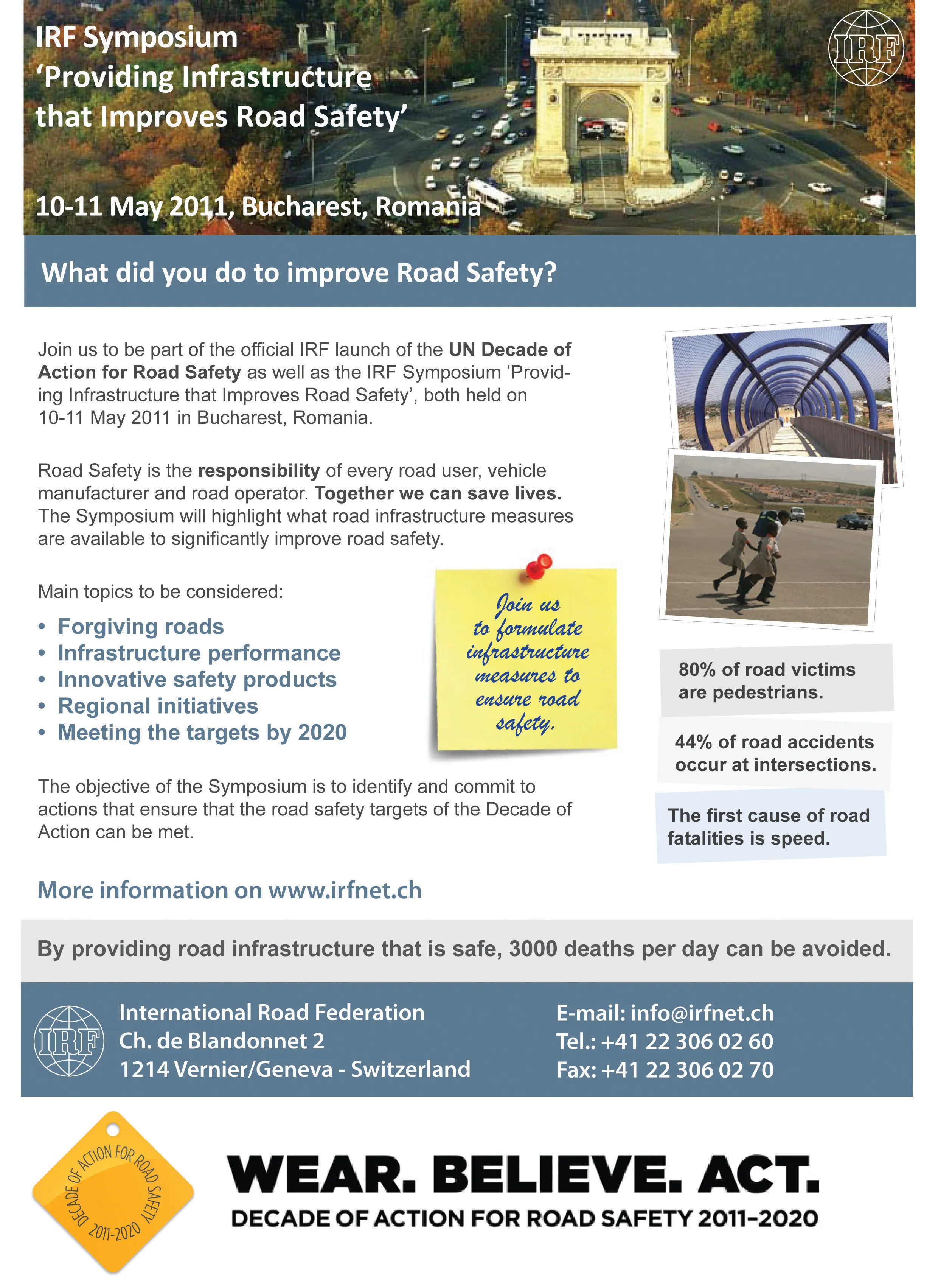The Road Safety community gathered in New York on 12th-13th April for the launch of a new United Nations Road Safety Trust Fund. The new UN Fund is intended to catalyse road safety action across the globe, using donations to help unlock new government and municipal funding and refocus national road safety budgets towards proven ‘Safe System’ interventions.
The 1341 FIA Foundation has pledged a donation of US$10 million to kick-start the fund launched by UN deputy secretary-general Amina Mohammed. The FIA Foundation’s donation will help to leverage additional support for the Fund from governments, other philanthropies and the private sector to work towards achieving the UN’s Sustainable Development Goal (SDG) of a 50% global reduction in road fatalities and injuries.
3M – a member of the IRF family – and Total are the first two private sector companies stepping in with donation pledges. “As a member of the Advisory Board of the FIA High Level Panel on Road Safety and a longstanding advocate of road safety, IRF will do its outmost to solicit and encourage donations to the Fund from its members and partners, whether from the private or the public sector,” said Susanna Zammataro, IRF executive director. “We stand ready to support the delivery of projects and programmes funded by the Trust Fund and to enhance collaboration and coordination at all levels via – in between others – our active role as members of the 3262 United Nations Road Safety Collaboration Group (UNRSC),” Zammataro concluded.
The 6504 UN Economic Commission for Europe estimates that for every $100 million raised and deployed by the fund, a further $3.4 billion of country and city investment can be unlocked for infrastructure and road safety programmes, saving 64,000 lives and preventing 640,000 serious injuries. To meet the road safety sustainable development goal targets for road safety by 2030 will require at least $770 million/year in catalytic financing, so the stakes are high and the challenge great.
The official launch followed the UN General Assembly debate on road safety, where a new resolution was adopted following a long series of interventions from the different government delegations present, has recalled the urgency of action in response to the rising toll of road fatalities and injuries globally. HRH prince Michael of Kent spoke on behalf of the UK, sharing the country’s own journey to reducing fatalities, but was also clear in stating that 1700 deaths/year is still unacceptable. With only two years until 2020 to deliver the SDG target, where the 3439 Decade of Action for Road Safety will also come to a close, Prince Michael urged the international community to redouble efforts to reduce road crash fatalities by 50%.
UNECE executive secretary Olga Algayerova stated “the United Nations Road Safety Trust Fund will serve as a catalyst for much-needed progress towards the road safety targets of the Sustainable Development Goals. UNECE is honoured to host the Secretariat of the Trust Fund, and, as home to both the United Nations road safety conventions and the Secretariat of the United Nations secretary-general’s special envoy for Road Safety, is committed to working with all stakeholders to multiply the impact of global action to improve road safety.”
Commenting on the launch, Zammataro said: “I think we all have to pay a special tribute to the UN special envoy for Road Safety, Jean Todt, today for his relentless work over the past years and that has made this great achievement possible today. Following his example and leadership, we all need now to step up action and make sure road safety becomes a reality for all. Access to relevant knowledge and data is a fundamental first step. IRF’s knowledge centre www.gtkp.com hosts significant work produced in the framework of UNRSC and that will be of great help and guidance to anyone working on road safety. Access to these resources is free and we look forward to everyone’s contribution to keep this important knowledge resource growing.”










